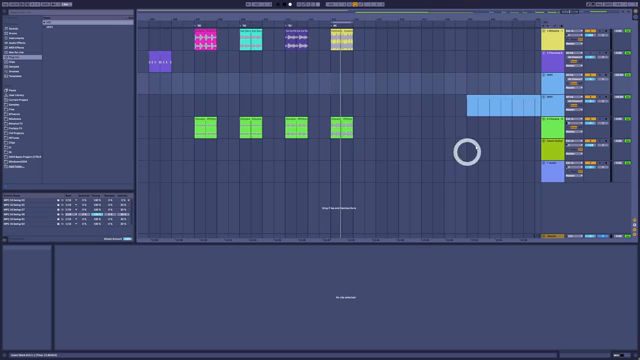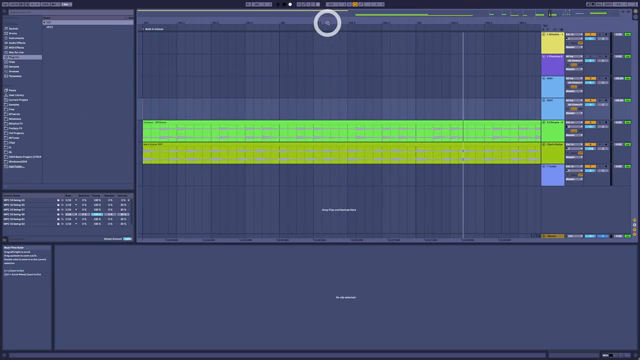Forget the sunshine and rainbows, Bthelick brings dance music down to earth with a pointed analysis of riff accusations hurled at Calvin Harris. His video strips down the rumour of musical theft between Harris and Chicane’s catchy Offshore, weighing in on rhythm, key manipulation, and ever-familiar vibes that float around the dance scene. It’s not just about notes here; it’s about the raw tact of dissecting tunes with a sceptical ear.

Setting the Scene: A Claim of Theft
The video opens with Bthelick addressing the burning question: did Calvin Harris nick a riff from Chicane’s track Offshore? It’s music drama at its finest, with Chicane’s Nick Bracegirdle pointing fingers over the alleged copycat treachery in Harris’s track Blessings. Bthelick, ever the straight-talking music detective, sets out to unravel this controversy. He establishes his credibility with a solid background in music and a laser-sharp focus on the facts, aiming to deliver an unbiased investigation into the heart of the matter.
A Matter of Key: Musical Fingerprints
In this detailed breakdown, Bthelick dives headfirst into the intricacies of key changes—a classic tactic, really, in music manipulation. Chicane’s claim centres around perceived similarities when both tracks are pushed into the key of C minor. However, as Bthelick points out, this involves more fiddling around than a violinist warming up before a concert. Offshore originally dances around in F minor, while Blessings kicks it in B minor. Mr. Bracegirdle slides both into C minor for a head-to-head, but it’s clear from Bthelick’s dissection that this pitch surgery fundamentally alters the original vibe and soundscape. The result? Key similarities that exist more in the manipulated versions than in their raw forms. And in a cheeky twist, even Calvin Harris’s track was subtly shifted, making the supposed comparison a bit of a stretch.
Rhythmic Riddles: Beat or Cheat?
Next up on Bthelick’s surgical table is rhythm, the heartbeat of any tune. Bracegirdle carves up specific slices of the riff, claiming rhythmic resemblance. With the seasoned eye of a detective, Bthelick reveals that such matches are more common than duplicate kebabs in a takeaway menu. Rhythm, particularly in 4/4 time, can often appear uncanny simply due to the very foundation of dance music. With a playful nod to history, Bthelick slides in examples of rhythms from past electronic hits that also mirror Offshore’s beats. His demonstration underscores the music scene’s universal timing techniques, bringing to light the chopping and matching feats Bracegirdle orchestrated to fit his narrative. The similarity in half-bar rhythms could easily be chalked up to classic dance beats reshuffled by countless artists.

"That sounds like this."
Chords and The Craft of Composition

"That's the riff to Insomnia."
Bthelick then tackles chords, the unsung heroes of music creation. Through clear-eyed analysis, he explains how the manipulation of minor chords forms the crux of many electronic riffs, including Offshore’s. Drawing comparisons to iconic techniques used in the genre, Bthelick deftly walks viewers through the concept of harmonisation, where chord progression and chord inversions play pivotal roles. By shifting notes around within a minor chord, one can spin melodies that seem restrung yet resonant. This isn’t an infringement on intellectual property, but rather a recurring tale in the world of riffs—akin to a secret handshake every dance producer knows. It’s a recipe without a patented ingredient, leaving the claim of theft as shaky as a DJ’s turntable at the end of a wild night.
The Verdict: Vibe, Not Vice
After dissecting keys, rhythms, and chords, Bthelick lays down the law. His verdict? The tracks share a vibe, not a verbatim riff. In an industry where every chord and rhythm has probably been played a hundred times over, Bthelick argues that this case is no notable infringement of musical craft; it’s rather a reflection of shared stylistic nuances. Emphasising the importance of not owning a vibe—lest the entire dance music genre be squashed under legalities he humorously underscores the absurdity of claiming ownership over such commonplace techniques. After all, creativity is a shared sandbox, not a solitary claim to fame.
An Expert Offer with a Price
Ending on a cheeky note, Bthelick flips open the idea of offering his ‘expert’ services for a hefty fee should Nick need a musicologist in court. It’s a wink at the video’s intricate dissection, offering his analytical prowess—but not without cost. With a humourous jab at the notion of justice in music, he suggests his expertise comes at a steep price of £270,000, though with the promise of unparalleled dedication to the cause. This candid offer serves as a lighthearted finale, capping off the detailed breakdown with a smirk and a nod to the curious world of musical legalities.